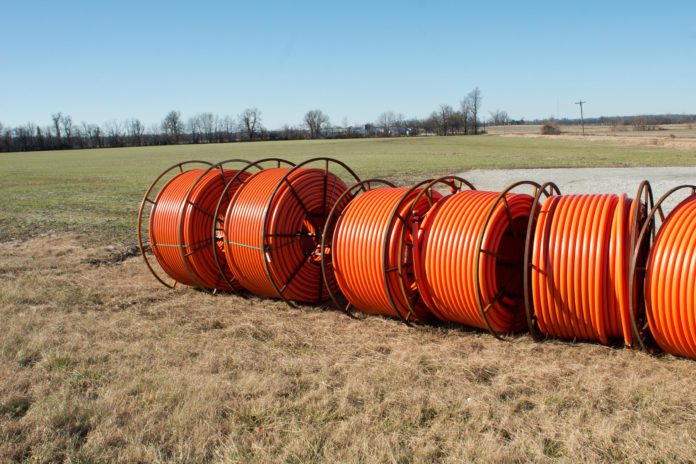With all BEAD state plans approved, vendor selection is starting
As of this week, all 50 states, the District of Columbia and the five U.S. territories which are participating in the Broadband Equity, Access and Deployment (BEAD) program have had their plans for connecting all residents approved by the National Telecommunications and Information Administration (NTIA).
The last of the BEAD state plans to be approved was that of Texas, which received approval from NTIA on Tuesday. Texas was allocated more than $3.3 billion to deploy or upgrade Internet networks in the state to ensure ubiquitous access to “reliable, affordable, high-speed Internet service,” NTIA said. (You can check out the full list of state-level BEAD allocations in this piece.)
Now that all the BEAD state plans have been approved, the states and territories are able to request access to their funding and begin implementation of their BEAD plans. The BEAD state plan approvals have been happening on a rolling basis, so some states are further along than others.
According to NTIA, 16 states and territories have finalized which homes and businesses will be connected by BEAD-supported projects. Eight of them have started their vendor selection processes for the companies which will build the networks.
Earlier this week, Louisiana (which received a BEAD allocation of $1.355 billion) became the first state to release its Final Proposal for public comment. The Final Proposal is the final submission to NTIA in order receiving the BEAD grant funding, and as Louisiana described it, “describes Louisiana’s progress in implementing the approved Initial Proposal, including the results of its deployment subgrantee selection process.” Louisiana was also the first to have its initial BEAD proposal approved by NTIA; comments on its plan are due by December 10.
NTIA said that an estimated 7 million homes and businesses across the country don’t have high-speed internet access. BEAD, funded by the Bipartisan Infrastructure Act, provides tens of billions of dollars to connect those locations.
While much of the attention around BEAD has been on the BEAD state plans, the $42.5 billion program also includes other programs focused on connectivity that are already underway, including the Tribal Broadband Connectivity Program and the Middle Mile Program.
Middle-mile progress continues
Also on Tuesday, network infrastructure provider eX² Technology held the official construction kick-off of a $17 million fiber-optic middle mile network in Vermont and New Hampshire, of which $12 million in funding came from BEAD. The more then 200-mile middle-mile network is expected to be complete by December 2025. It will link 25 municipalities within Grafton County, New Hampshire, according to eX² Technology, including a “key connection point” at Plymouth State University.

According to NTIA, more than 3,200 miles of fiber are already under construction as part of the Middle Mile Program.
Middle-mile infrastructure received a dedicated $1 billion in funding through the Bipartisan Infrastructure Act. The first Middle Mile project broke ground earlier this year in Reno, Nevada. That project is a $24 million project in which network infrastructure provider Zayo will build a 645-mile fiber network through the Panther Valley and Reno communities in Nevada as well as rural parts of Oregon and northern California. That network will include 23 network access points “to enable ready access to local Internet Service Providers, which will vastly improve the speed and quality of Internet service to homes in the area,” according to NTIA.
NTIA has approved middle-mile projects in more than 370 counties in 40 states and Puerto Rico, for the deployment of more than 12,500 miles of new fiber that will pass within 1,000 feet of community anchor institutions. Grants range from $2.7 million to $88.8 million, with an average of $25.1 million; the middle-mile project awardees are investing $871.79 million in outside match funding, NTIA said.
The federal agency has also launched a number of dashboards through which the progress of infrastructure projects can be tracked, available via the Internet for All website.
Editor’s note: An earlier version of this story indicated that Grafton County is in Vermont. It is in New Hampshire.

